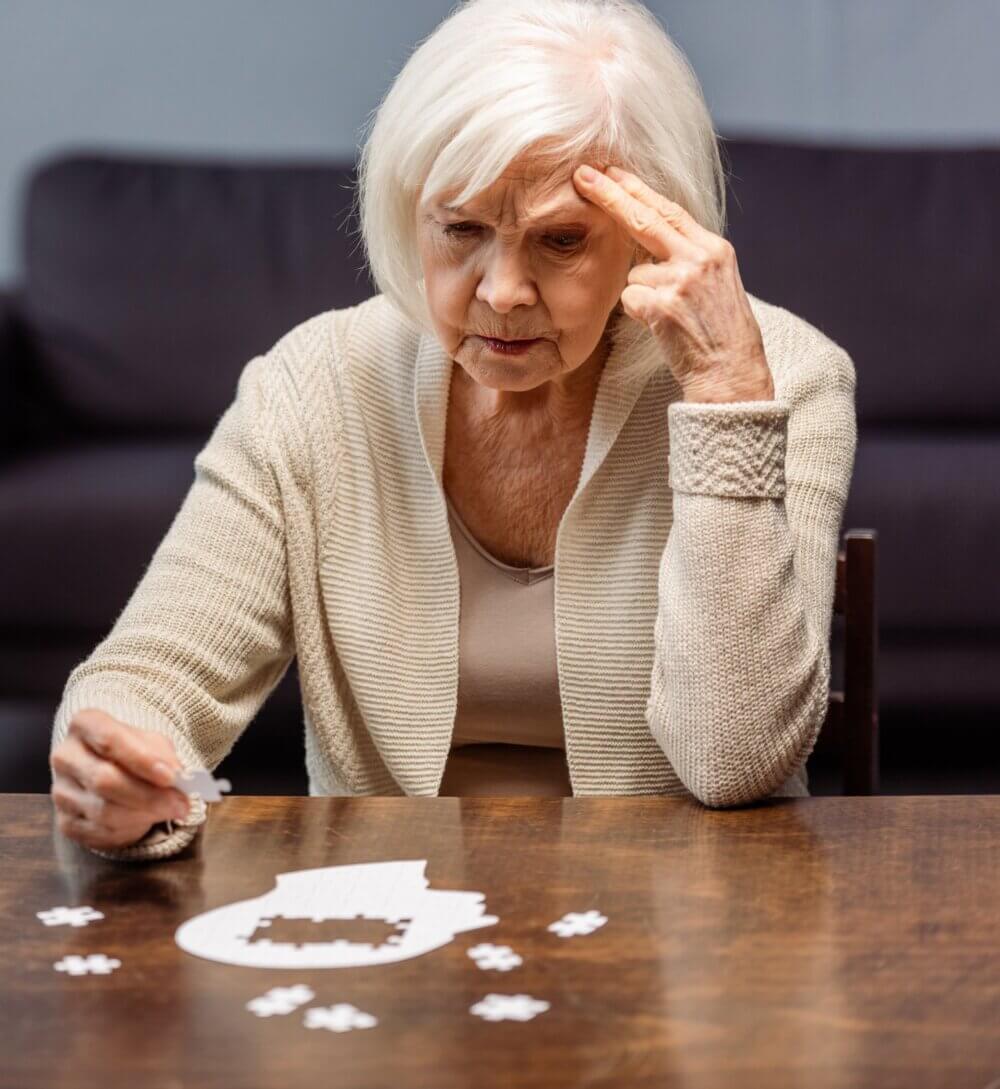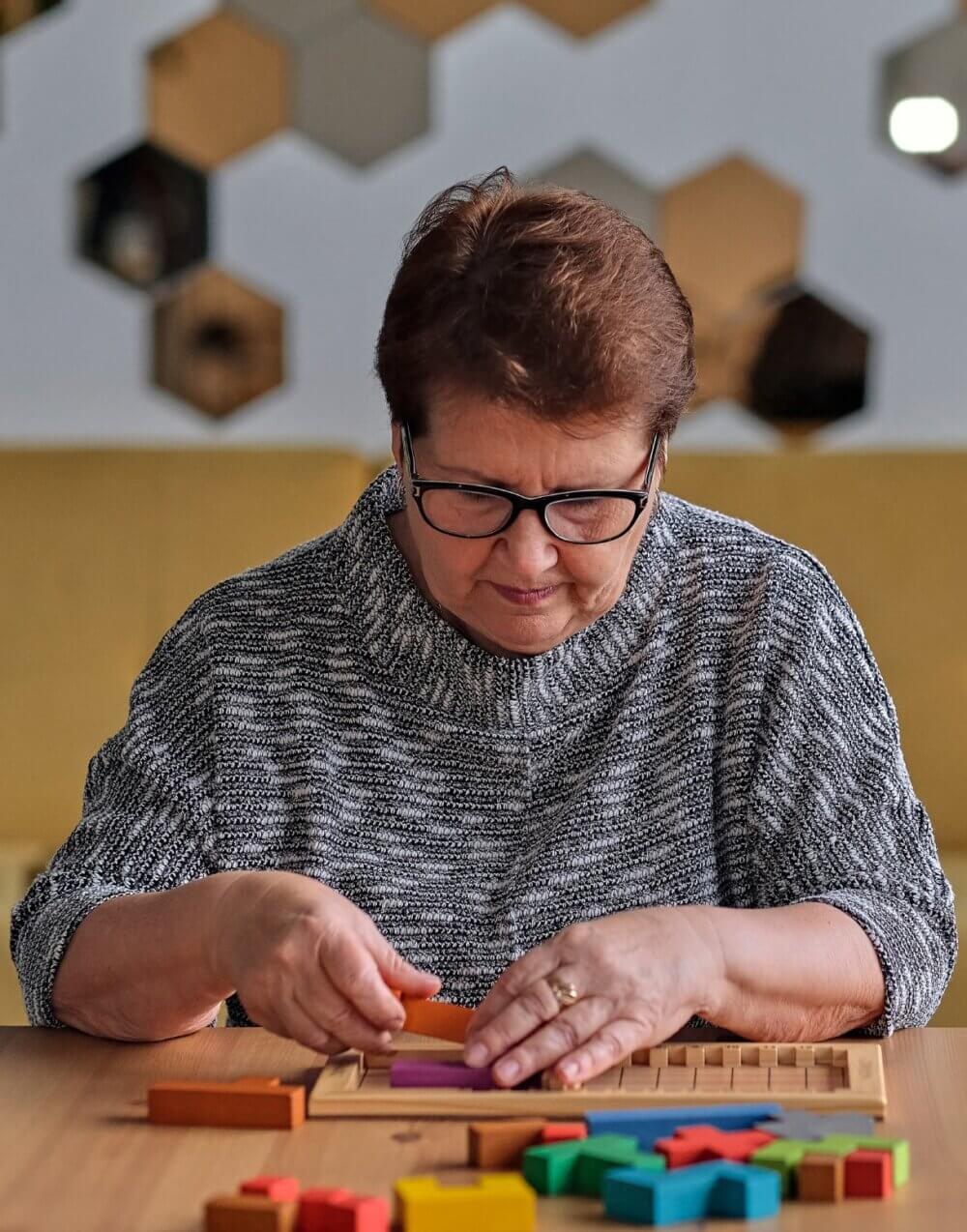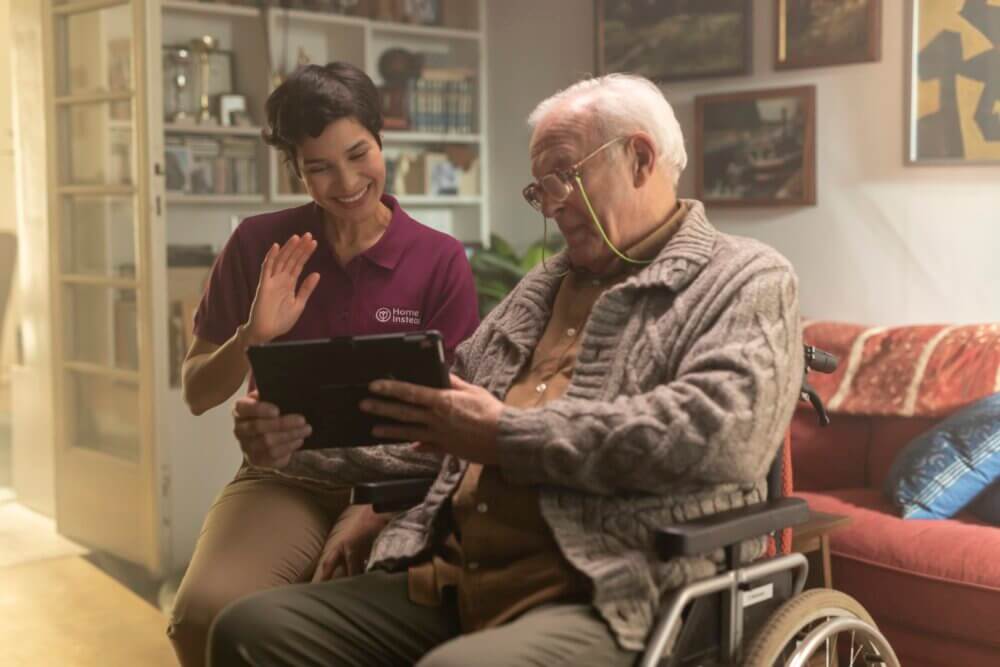Can Reminiscence Therapy Enhance the Lives of People Living with Dementia?

Dementia is a challenging condition that affects the lives of individuals and their loved ones.
For people with Alzheimer’s and other forms of dementia, personal identity can seem to slip away as cognitive abilities decline. But even as individuals begin to lose touch with current events, they may hold onto cherished memories. Photographs, treasured objects, and favourite songs all can help stimulate fond thoughts of the past for people with dementia. Which can help their mental health and reduce challenging behaviours.
Therefore, it becomes increasingly important to find activities that can engage their minds, evoke positive emotions, and foster a sense of connection.
Reminiscence therapy has emerged as a valuable approach in helping individuals with dementia access and relive their long-term memories, providing them with a renewed sense of self and purpose.
Understanding Reminiscence Therapy for People with Dementia
Reminiscence therapy involves activities and stimuli that encourage individuals with dementia to reflect on their past memories and past events. The therapy is based on the understanding that people with dementia typically have easier access to long-term memory compared to short-term memory. Recent memories are quite difficult to recall, and they can get into a distressed state and feel lost.
By creating opportunities for individuals to engage in reminiscing activities, we can trigger memories and provide them with a sense of familiarity and comfort.

Benefits of Reminiscing Therapy & Activities for People with Dementia
Older adults may start to feel left behind or disconnected as they age. The RT approach can allow them to feel heard and valued.
The key advantage is that it helps stimulate memories and meaningful conversation.
- Reminiscence therapy targets certain parts of the brain.
- It stimulates the parts that deal with long-term memory and cognition.
Storytelling about past events can help individuals with dementia feel less isolated and more connected to the present.
Sharing stories, various senses such as sight, sound, touch, and even taste can be triggered, evoking vivid memories and enhancing the overall experience. This multisensory approach can be particularly effective in bringing back cherished moments and fostering emotional connections.
Additionally, reminiscence therapy has been shown to improve cognitive function and memory recall in individuals with dementia. By actively engaging their minds through conversations, visual aids, and interactive activities, we can help stimulate their cognitive abilities and potentially slow down the progression of memory loss.

Engaging in Tactile Memory Exercises
Tactile memory exercises provide an excellent starting point for reminiscing activities. Begin by having conversations about the past and actively listening. This allows the individual to share their life story and recount pleasant memories of things they used to enjoy, or positive feelings they had for someone.
Taking notes during these conversations can be incredibly helpful in planning a mental activity tailored to their interests and preferences.
To further prompt discussion, ask questions such as:
- What did you enjoy doing when you went out?
- Do you like music?
- Who were the influential people in your life?
- What fashion choices did you make in the past?
- What did you do for a living?
- Did you have an interest in arts and crafts?
- Did you enjoy dancing?
You could also add some follow-up questions:
- What was your favourite song ever?
- Did you have a favourite dress/shirt you always used to wear?

Friendly Memory Exercises for Dementia
In addition to tactile memory exercises, engaging in mentally stimulating activities can significantly improve brain health and overall wellbeing in individuals with dementia. Reading, writing, and playing games are excellent examples of such activities. They keep the brain active and encourage cognitive function.
Triggering sensory responses is also crucial in reducing the risk of dementia. By incorporating sensory elements into activities, such as using textured materials or playing familiar sounds, individuals with dementia can remain engaged and attentive.
Using Images for Memory Recall
Images play a powerful role in triggering memories and facilitating meaningful conversations. Start by categorising images into different subjects of conversation, such as celebrities of their time, world events, musicians, and icons relevant to the person’s life. These images can be compiled in a physical photo book or stored digitally on a tablet or laptop.
Music is a Powerful Memory Stimulant
Music has a profound impact on individuals living with dementia. Discovering the types of music the person enjoys can lead to meaningful connections. With the abundance of audio streaming platforms like Spotify, iTunes, and Amazon Music, it is easier than ever to access their favourite songs and artists. Singing along together can also provide a wonderful opportunity for connection and enjoyment. Also Youtube for video clips of historical events can trigger positive memories of what they did on that day. Such as the Queen’s coronation.
Arts and Crafts for Recreational Therapy
Identifying familiar crafts that they used to enjoy allows them to reconnect with their creative side. Choosing activities that are familiar to them is important, as they are more likely to find enjoyment in them than other crafts.
Depending on the specific craft, some adaptations or simplifications may be necessary to ensure their continued engagement or safety.
Using Items for Sensory Stimulation
Finding items that stimulate the senses can greatly enhance reminiscence activities. Keep an eye out for interesting items in second-hand stores, charity shops, or car boot sales. Items such as vintage kitchenware, postcards, or old toys can evoke memories and provide a tactile experience. Encouraging the person to touch and feel these items can further stimulate their senses and create meaningful connections.

Maintaining Ongoing Reminiscence Sessions
Once you have established a collection of items and memories, it is important to continue engaging in reminiscence sessions regularly. These sessions may reveal additional important parts of their past, allowing you to expand the collection and deepen the connections made. By maintaining consistency in these activities, you can provide a sense of routine and stability for the individual with dementia.

The Importance of Comprehensive Dementia Care for Diagnosed and Family Members
While engaging in reminiscence activities is beneficial, it is equally important to ensure that individuals with dementia receive comprehensive care in all aspects of their lives. Being a full-time family caregiver can be physically and emotionally demanding, so it is crucial to prioritise self-care. By taking regular breaks and seeking support from Home Instead Care Professionals we can help ensure that everyone involved with a person with dementia receives the care they need.
Reliable Dementia Care at Home
If you find yourself in need of extra support, Home Instead are a reliable dementia care service that is provided at home. We can provide the necessary assistance for individuals with dementia to continue living in their familiar surroundings. Our services offer professional support, making sure that the unique needs and challenges of dementia are met effectively and compassionately.

FAQs
How often should I engage in reminiscence activities with a person with dementia?
It is recommended to engage in reminiscence activities regularly, depending on the individual’s preferences and capabilities. Aim for several weekly sessions to maintain consistency and reap the benefits of memory stimulation.
What if a person with dementia has difficulty recalling memories?
If the person with dementia struggles with memory recall, be patient and provide gentle prompts. Focus on creating a comfortable and supportive environment that encourages relaxation and engagement, even if memories are not easily accessible.
Can reminiscence therapy slow down the progression of dementia?
While reminiscence therapy cannot reverse or halt the progression of dementia, it can improve daily living and the individual’s quality of life by promoting cognitive stimulation, emotional connection, and a sense of wellbeing.
Are there any specific safety considerations when engaging in reminiscing activities?
Yes, safety should always be a priority. Make sure the environment is free from hazards and adapt activities to the individual’s physical and cognitive abilities. Supervision may be necessary for certain activities to prevent accidents or injuries.
What if the person with dementia becomes upset or agitated during reminiscing activities?
It is essential to watch the person’s emotional wellbeing and adjust the activities accordingly. If agitation or distress occurs, redirect their attention to a different activity or introduce calming techniques, such as soft music or gentle conversation. Make a note of the painful memory or activity so you can avoid it in future.

Areas We Serve
Yeovil, Bridport, Sherborne, Crewkerne, Weston, Martock, Somerton, Langport, Eastfield, Castle Cary, Bruton, South Petherton, Beaminster, Milborne Port and surrounding areas.
DT6 3, TA18 7, TA12 6, BA22 9, TA14 6, DT6 6, TA11 7, TA11 6, BA21 3, DT9 6, DT6 5, TA10 0, BA22 8, BA7 7, DT9 5, DT6 4, DT2 0, BA21 4, TA17 8, DT8 3, BA22 7, TA10 9, TA13 5, BA10 0, BA9 8, TA15 6, DT9 3, BA20 2, BA21 5, BA20 1, TA16 5, DT9 4, TA18 8
Office Address: Somerset Yeovil Innovation Centre, Barracks Close,
Copse Road, Yeovil,
Somerset – BA22 8RN
Phone: 01935 577030